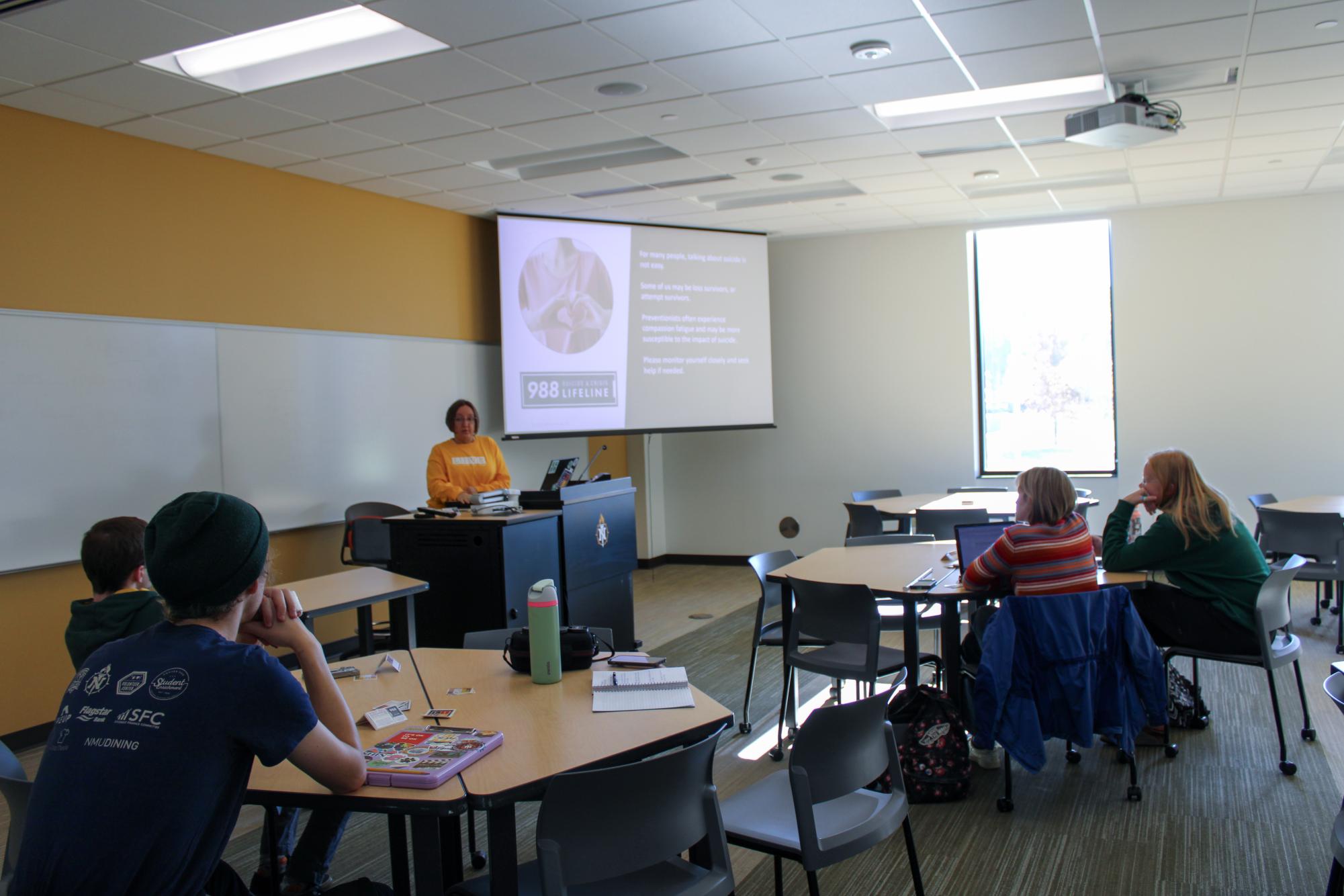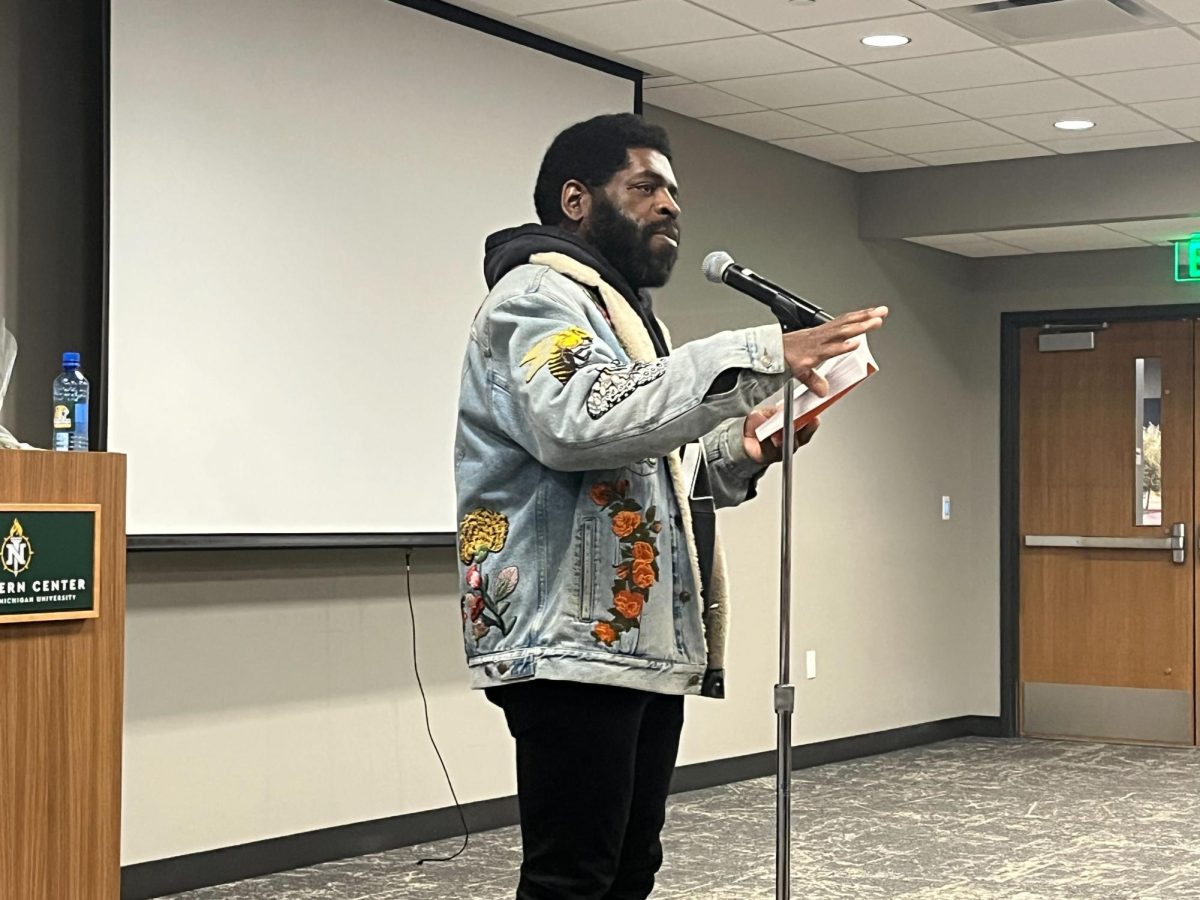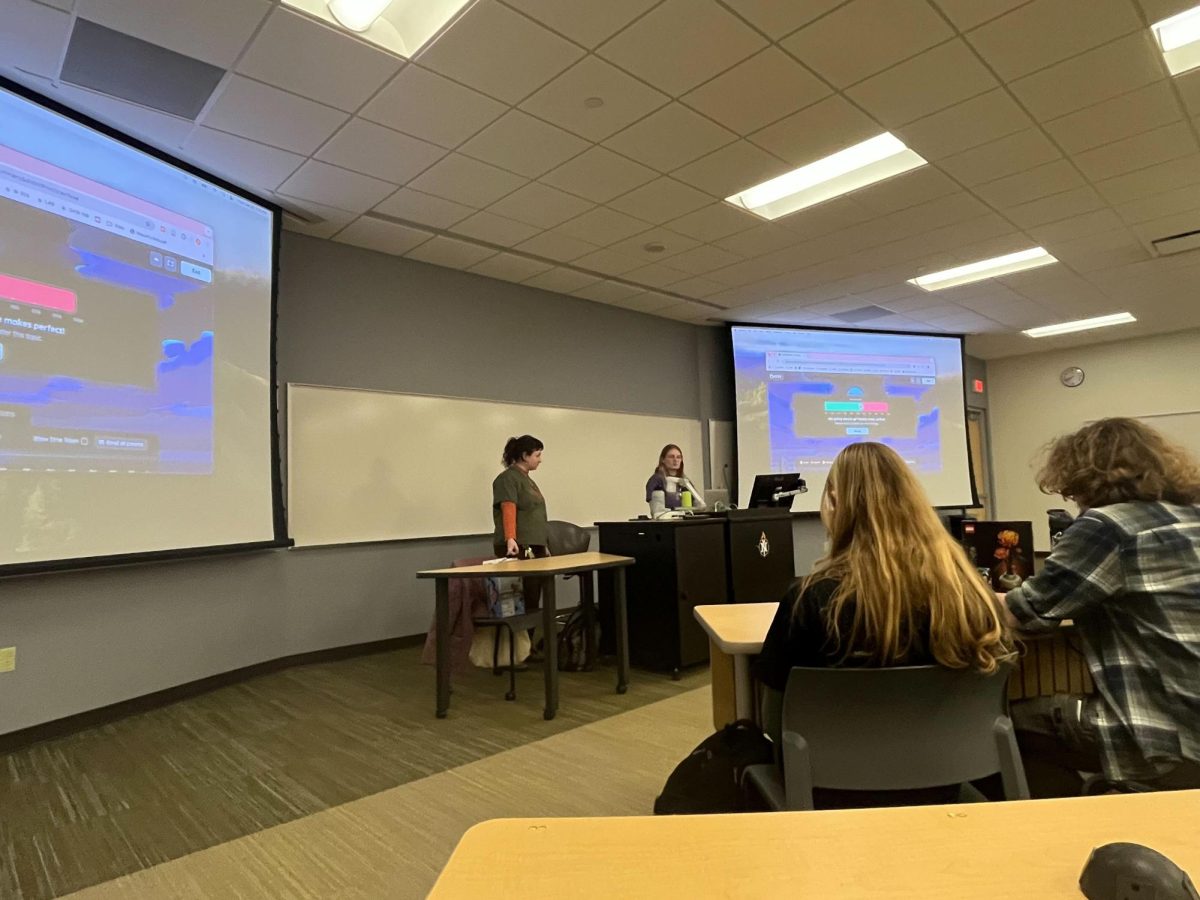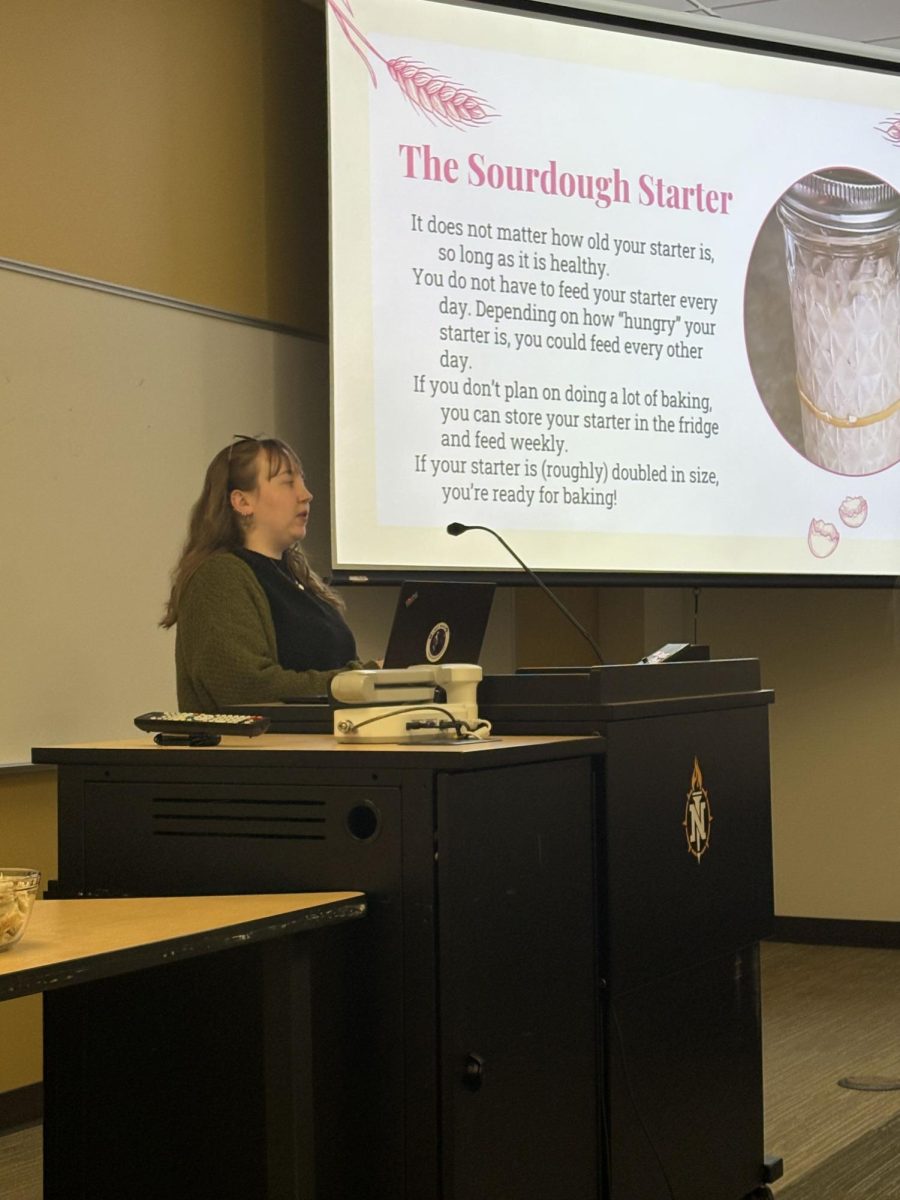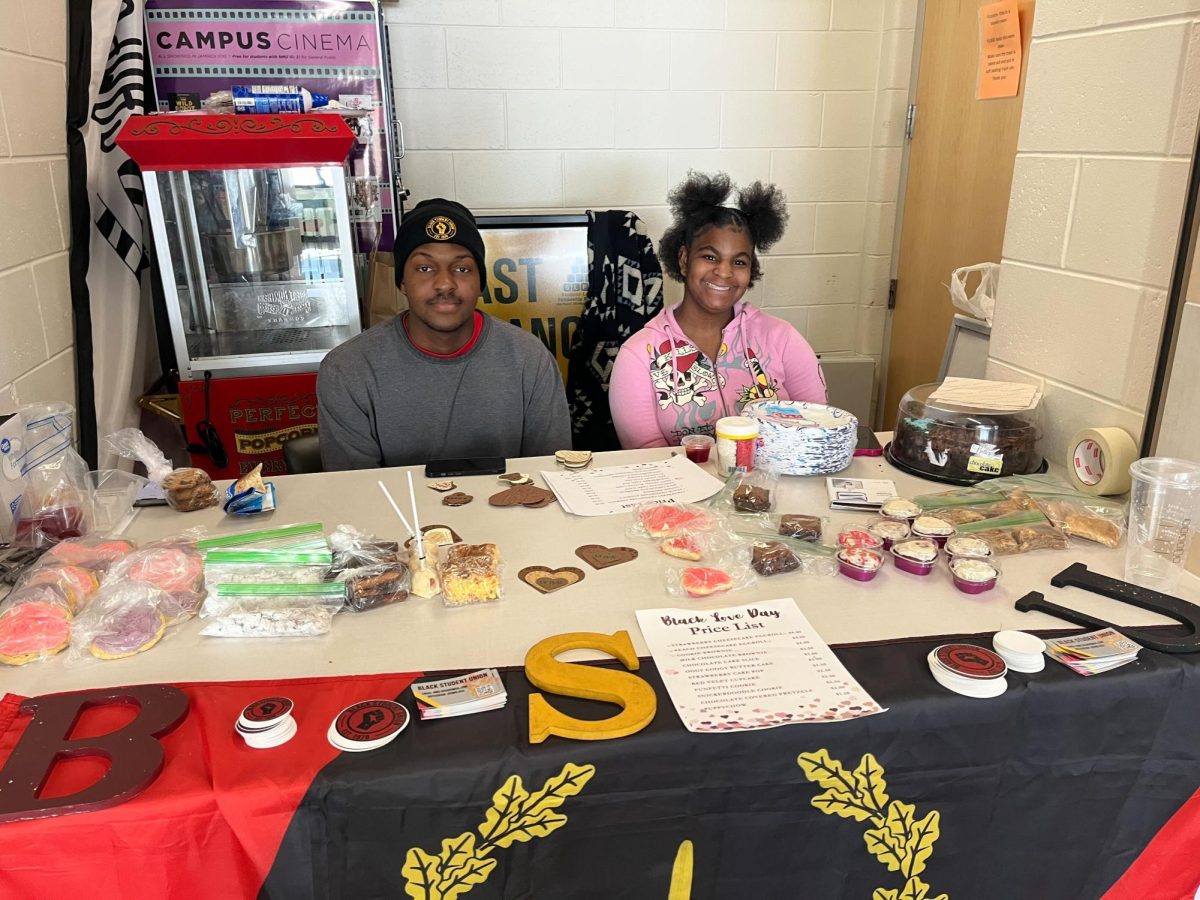The Student Leadership Fellowship Program (SLFP) hosted a Question, Persuade, Refer (QPR) training Skill Builder open to all students on Oct. 8 in Jamrich Hall. Students were given the opportunity to learn about suicide prevention and key signs of suicide risk. QPR is a three-step process that one should use when encountering someone who is displaying suicidal tendencies or thoughts.
Presenter Amy Poirier explained that in a situation where you believe someone is struggling with suicidal thoughts, you should not be afraid to ask direct and indirect questions such as, “Have you been very unhappy lately?” or “Are you thinking about suicide?” She covered types of questions you can ask people to get the conversation started, which is the first step in the QPR process.
“I suggest doing the indirect questions first to build up that rapport a little bit, even if it’s somebody that you talk to all the time – talking about this can be a hard situation,” Poirier said.
The next step in the process is to persuade. This involves persuading someone to stay alive, or to have a conversation with you until help arrives. Poirier explained that people who are struggling with the thought of suicide do not need to be judged, they just want someone to listen to them. In such a conversation, simply listen to what they have to say.
Lastly, Porier taught students to refer someone to those who can help them. This help can be the CARE Team if the person attends NMU or the National Suicide Prevention Hotline, which can be reached by calling 988.
The CARE Team is a referral program to which you can submit the name of someone you believe is struggling or needs help, and the team will reach out to them and give them resources. The team can help with finding resources for financial struggles, mental health struggles, relationship violence and other issues.
The Skill Builder also detailed how to identify indirect and direct verbal and behavioral cues that signal someone is struggling mentally, which is how one would know to start the QPR process. Poirier pointed out direct quotes from people who were struggling with the thought of suicide, so students know exactly what to look out for.
“Being fired or expelled from school, a recent unwanted move and loss of any major relationship are all examples of behavior clues,” Poirier said.
Poirier also explained the stigma surrounding suicide and mental health in general, showing reasons why some might not want to reach out for help or answer your questions at first.
“Even if they’re reluctant [to answer your questions], remember they’re reluctant because there’s a huge stigma on mental health and suicide, so don’t give up when they say no once,” Poirier said.
According to senior Izzy Filippelli, this presentation was very enlightening and helpful for students.
“It gave me the opportunity to learn more about resources that are offered on campus and in the area,” Filippelli said. “One thing that stood out to me was the emphasis on helping anyone, regardless of how well you know them.”
If you or someone you know is in emotional distress, call or text the Suicide & Crisis Lifeline by dialing 988.

